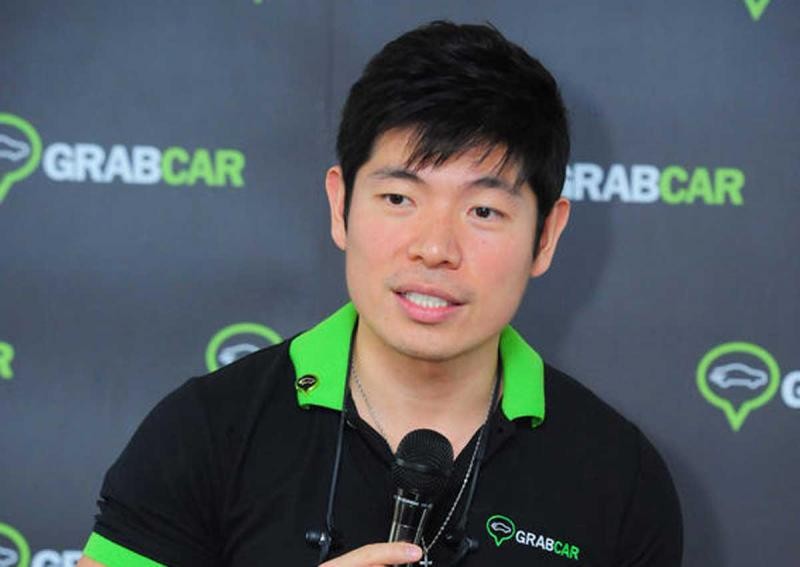GrabTaxi CEO says local knowledge is key for ride-hailing apps

Uber is the elephant in the room, and on the road, but GrabTaxi founder and chief executive Anthony Tan reckons being local will give his Singapore-based start-up the edge in Asia.
Tan, who has expanded GrabTaxi to service 28 cities across six countries in Southeast Asia, told CNBC's "Managing Asia" that his company had a headstart on Uber in the intensely competitive region.
"And we continue to build that headstart, not only with the consumers, not only with the drivers, but also with the government," Tan said.
On GrabTaxi, drivers and passengers negotiate the terms of their trips directly with one another through the app, and the company takes a flat 20 per cent commission.
In December, GrabTaxi entered into a partnership with other ride-hailing apps - China's Didi Kuaidi, India's Ola and US-based Lyft - with a view to covering a broader market but with a local's expertise that Uber could struggle to match.
"There is a clear advantage of being local," said Tan, "and the local players, including Lyft in the States, have agreed to come into what we call a global partnership."
It's not just about relying on a local player to better understand local customers. Each of the four have experience dealing with the regulatory regimes in their home markets, so should in theory navigate red tape with greater ease than their largest rival as it expands in the same markets.
GrabTaxi has a record of working closely with governments; Tan said the company had permits to operate legally in Vietnam, the Philippines, and Singapore.
The aim of the partnership is also to provide a single ride-hailing platform for global travelers who visit multiple cities, from New York city to Singapore to Beijing and Mumbai.
"How do we make sure that he stays exclusively on our platform, never having the need to move to another app?" said Tan. "That's the beauty of this global partnership."
The joint ride-hailing system is still being built and Tan did not give an indication of when it might be operational.
But time is of the essence. Uber has set its sights ever more firmly on the Asian market - as recently as Wednesday, Uber received almost US$2 billion (S$2.88 billion) in funding from Chinese investors - and has far more money to play with.
Collectively, Didi Kuaidi, GrabTaxi, Lyft and Ola have raised more than US$7 billion in funding, while as of December, Uber had attracted US$62.5 billion.
But for Tan, taxis are as much personal as they are business.
His grandfather was a taxi driver and his family runs an auto business that has franchises for several car brands, including Nissan and Subaru, in Malaysia. When he is not running his start-up, the 33-year-old Harvard Business School graduate occasionally drives a taxi.
"Well, [more] specifically a [ride-hailing] car," he said. "I have recently signed up as a GrabHitch [a car-pooling service from GrabTaxi] driver to pool for others."
Tan says the time he spent working in the family business - he quit in 2012 to start GrabTaxi - taught him how to work with governments, as well as with people of different nationalities and cultures, and instilled in him the "need of getting my hands dirty as a driver."
GrabTaxi has raised about US$700 million in funding so far, from notable names such as Singapore's Temasek, China's Didi Kuaidi, Japan's Softbank, and Silicon Valley-based GGV Capital.
Tan was coy on GrabTaxi's actual valuation, though, saying he preferred to let the market decide.
"They have been great partners," said Tan of his investors. "They've been extremely supportive, I would say. In fact, they will push [and] say, hey, Anthony, have you thought about this?"
Most of the funding has so far gone into research and development, including enhancing the user experience of GrabTaxi's platform, as well as on hiring globally and initiatives to increase the customer base.
GrabTaxi recently announced the opening of its first US office, in Seattle, Washington (as well as its Singapore HQ, it has R&D facilities in Singapore and Beijing). The company hired former Microsoft 'Distinguished Engineer' Raman Narayanan, as a technical adviser, who will lead GrabTaxi's recruitment efforts in the US
Meanwhile, Tan is looking even further than the next office opening or funding round. He has a 50-year goal.
"How can we build the greatest Southeast Asian tech company [the region] has ever seen?"